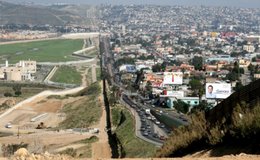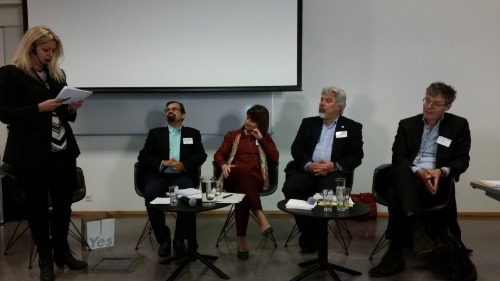On the Move - Global Migrations, Challenges and Responses

SEMINAR in connection with the ISSC General Assembly, hosted by Oslo and Akershus University College of Applied Sciences and co-organised by CROP
Current global migration flows have become a matter of concern across all continents, from the crossings of the border between the US and Mexico, migrants seeking access to Australia on boats, stateless people leaving Myanmar, and the current flows of refugees crossing the Mediterranean from North Africa or over the straits between Turkey to the Greek islands. Movements of people affect the welfare of millions of human beings – the migrants and refugees, those who stay behind, and the residents in transit and host countries.
Migrations have multiple causes that affect their intensity at certain points in history. Each important migration wave has impacted upon the composition, size, and development of different ethnic and religious groups, as well as the relations between them. The intermingling of populations enriches societies, creates diversity, and results in positive and rich combinations of cultures and ideas. Yet, the inflow and outflow of people can also generate new tensions and clashes among social groups in host countries. Such tensions and conflicts may redefine political identities and cultural cleavages in both the short and long term, making for new voter alignments and alliances. The changes are not just immediate – the repercussions and consequences may unfold over long periods of time.
Migrations are not only challenging states and international organizations but also social sciences. The International Social Science Council (ISSC) and Oslo and Akershus University College of Applied Sciences are organising the conference On the move – Global migrations, challenges and responses to address current challenges around migration and integration worldwide, and discuss policy responses and the role of science in addressing these issues. Researchers from all regions of the world and across the social science disciplines will present past and current research on migration, and exchange with international experts and practitioners. The identification of future research needs will be a crosscutting theme throughout the conference.
The conference is generously sponsored by Research Council of Norway, with support from the Norwegian UNESCO Committee.

The scientific organising committee consists of Ann-Helén Bay (leader), Alberto Daniel Cimadamore, Mathieu Denis, Ivan Harsløf, Are Vegard Haug, Gudmund Hernes, Charlotte Lillefjære-Tertnæs and Vivi Stavrou.






